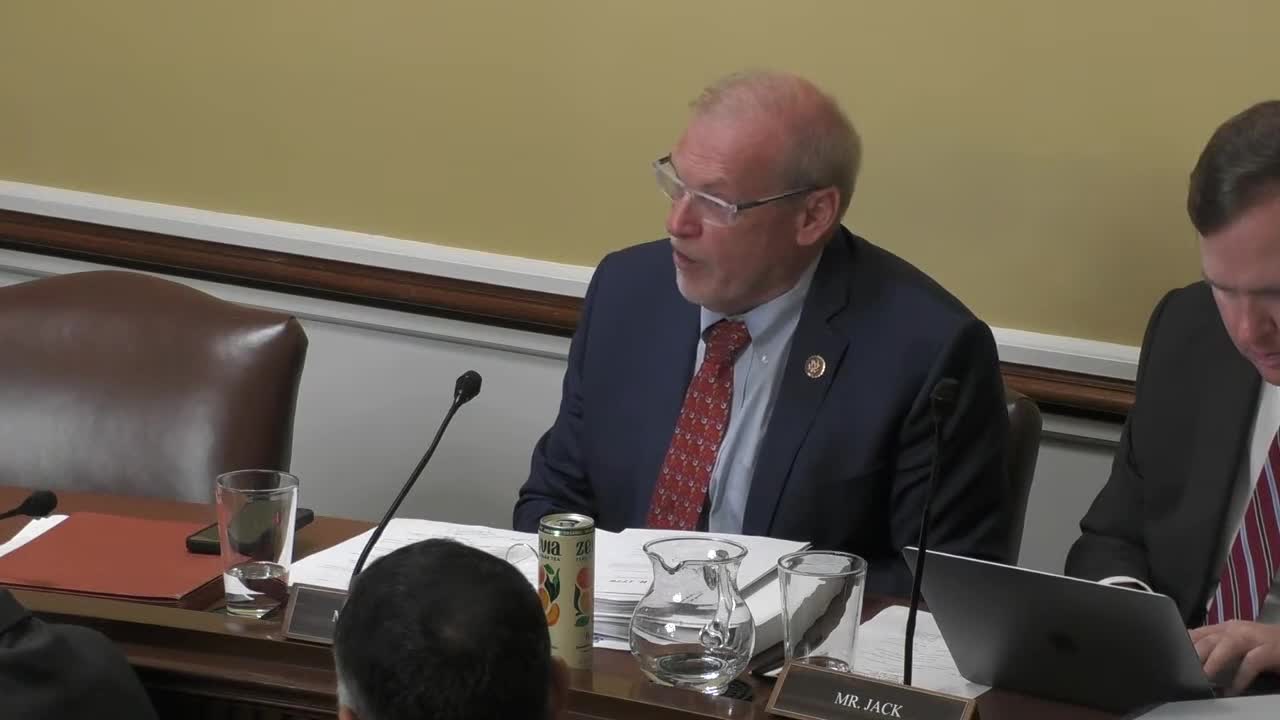
This article was created by AI using a video recording of the meeting. It summarizes the key points discussed, but for full details and context, please refer to the video of the full meeting. Link to Full Meeting
A central theme of the discussions was the necessity of establishing a clear regulatory framework for digital assets. Members expressed concerns about the United States potentially losing its leadership in technology and finance if these bills do not pass. The Clarity Act, in particular, was emphasized as a crucial step to prevent the U.S. from ceding ground to other countries that are already implementing their own regulatory frameworks for digital assets. Lawmakers pointed out that without action, the U.S. risks losing innovation and investment to jurisdictions with clearer regulations, such as Singapore and the European Union.
The Genius Act, which addresses stablecoins, was also a focal point. It was clarified that stablecoins issued by banks or credit unions would not be insured by the Federal Deposit Insurance Corporation (FDIC), distinguishing them from traditional bank deposits. This distinction raised questions about consumer protections and the need for transparency in how these new financial products are marketed and regulated.
Several committee members voiced their support for the bills, citing bipartisan backing as evidence of their importance. The Genius Act received significant attention, having garnered 68 votes in the Senate, indicating a strong consensus on the need for regulatory measures in the digital asset space. However, some members raised concerns about the adequacy of funding for regulatory bodies like the Commodity Futures Trading Commission (CFTC), which would be tasked with overseeing these new regulations. The CFTC's current budget constraints were highlighted as a potential barrier to effective regulation.
The meeting also featured a debate over the implications of digital currencies and the potential for government surveillance through central bank digital currencies (CBDCs). Some lawmakers expressed fears that such systems could infringe on personal freedoms and privacy, advocating for protections that would allow individuals to maintain control over their financial transactions without government interference.
In conclusion, the Rules Committee hearing underscored the critical need for legislative action to establish a regulatory framework for digital assets and stablecoins. As the U.S. navigates the complexities of this emerging financial landscape, the outcomes of these discussions will have lasting implications for consumer protection, market integrity, and the nation's position in the global economy. The committee's next steps will involve further deliberation on the proposed bills, with an eye toward addressing the concerns raised during the hearing.
Converted from Rules Committee Hearing H.R. 1919, 3633, 4016, and S. 1582 meeting on July 15, 2025
Link to Full Meeting
Comments
View full meeting
This article is based on a recent meeting—watch the full video and explore the complete transcript for deeper insights into the discussion.
View full meeting